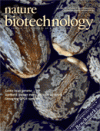A defamation case that hinges on a dispute over the presence of genetic modification in Peruvian maize crops, and that has attracted international attention, has moved back to square one — with a twist.
Biologist Ernesto Bustamante Donayre was last April found guilty of defamation — a criminal offence in Peru — for publicly criticizing a report published by a fellow biologist. Last month, however, the conviction was overturned: the appeal judge found that a lower court had not demonstrated that Bustamante had sufficient motivation to harm or defame his alleged victim. A recent government study of the crops in question may shape the outcome of any subsequent proceedings, Bustamante says.
The case began in 2008, when Antonietta Ornella Gutiérrez Rosati of La Molina National Agricultural University in Lima accused Bustamante, the scientific director of private genetic-screening firm BioGenómica, of defaming her by publicly criticizing a study she wrote and publicized that reported evidence of transgenic maize in Peru. Peru does not yet have regulations to control or permit the growing of genetically modified crops, and their illegal introduction is a source of lively debate — in which Bustamante has participated — in the Peruvian media.
In late 2007, Gutiérrez informed a government agency and a newspaper that she had found a P34S promoter and the transgenes NK603 and BT11 in 14 out of 42 maize samples collected from plots in the valley of Barranca, some 200 kilometres north of Lima. Bustamante responded with an opinion article in Peruvian newspaper El Comercio that called the report’s conclusions “absurdly improbable” and based on “gross procedural errors”. He also gave radio interviews and challenged Gutiérrez to submit her report for peer review.
Gutiérrez took Bustamante to court, and in April 2010 a judge found him guilty of defamation, ordering him to pay a fine of 5,000 soles (US$1,800) and placing restrictions on his travel. In 2009, Gutiérrez also presented her paper at a conference of the Peruvian Genetics Society in Cuzco, of which she was then president.
More than 650 scientists from around the world signed a public petition over the case, among them Bustamante’s graduate instructor, Nobel laureate Hamilton Smith of Johns Hopkins University in Baltimore, Maryland, who wrote, “We trained him to be critical of his work, and that of others, and to always seek the truth … It seems almost unimaginable to hear of his legal troubles for simply practicing good science.”
Commenting on the latest judgement, Ricardo Fujita Alarcón, a geneticist at the University of San Martín de Porres in Lima and a member of PeruBiotec, a pro-biotechnology group of which Bustamante is also a member, says, “This will have a positive effect because it shows people you can’t coerce scientists using judicial means.”
Round two
Last month’s overruling directs both parties to return to a conciliation meeting, but does not prevent Gutiérrez bringing a renewed suit in a different lower court, which is allowable under Peruvian law. “If he’s prosecuted again the whole thing would go back to the way it was,” says biochemist Paul Englund, also of Johns Hopkins University, a colleague of Bustamante’s. Englund says he fears that Bustamante’s conviction stifled scientific debate. “He’s someone that speaks his mind honestly, based on data. It’s outrageous that he’s being criminally prosecuted for it,” he adds.
Gutiérrez, who did not respond to an interview request, may still take the suit to another lower court, although the appeals judge recommended that the case go to a pre-trial conciliation hearing first. According to Bustamante, he now stands a better chance of getting a favourable outcome because, since his conviction, the National Institute for Agrarian Innovation (INIA) in Lima has tried to replicate Gutiérrez’s findings in Barranca but has failed to find genetically modified varieties of native maize, despite examining 162 samples.
“In the conciliation hearing I’ll most likely use that as a proof that what I said at that time was later found to be actually true,” Bustamante says. A finding in his favour will discourage other scientists from taking each other to court, Bustamante adds. “It would have been nice to have a judge come out and say, ‘Yes, science should not be taken to court’, but that’s not for lawyers to say. That’s for us scientists to state and to express and to fight for.”
First published by Nature [html] [pdf].
See also a previous story on this case for Nature Biotechnology: [html] [pdf].

 500 million ($690 million), about a quarter of his estate, to establish a foundation for applied biomedical research. He also surprised law professor and one-time Portuguese Health Minister Leonor Beleza, whom he named to lead the foundation. Beleza, who met Champalimaud just once, agreed in principle to run his proposed foundation during a phone call in 2000 but did not hear any further until his death. She has now returned from a global tour of medical research institutions and foundations lasting over a year to determine how best to spend Champalimaud’s millions.
500 million ($690 million), about a quarter of his estate, to establish a foundation for applied biomedical research. He also surprised law professor and one-time Portuguese Health Minister Leonor Beleza, whom he named to lead the foundation. Beleza, who met Champalimaud just once, agreed in principle to run his proposed foundation during a phone call in 2000 but did not hear any further until his death. She has now returned from a global tour of medical research institutions and foundations lasting over a year to determine how best to spend Champalimaud’s millions. 
